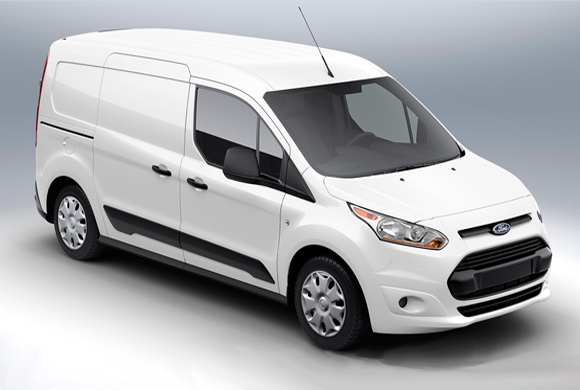Ford Transit Connect van offers a practical design and well-thought out load space with healthy engine
Introduction:
Ford’s Transit van range has grown in recent years. There’s now the largest van in the range, simply named ‘Transit’ under which sits the Transit Custom, Transit Connect, and Ford Fiesta-based Transit Courier. That leaves the solid Connect in the middle, where it struggles along with rivals like the Renault Kangoo, Volkswagen Caddy, Fiat Doblo and Citroen Berlingo – to name but a few.
It’s certainly a crowded marketplace, but the Transit Connect mainly benefits from the brand cachet that directly comes from Ford’s all-overpowering Transit line. It’s not only a name, though, as the Transit Connect truly is an exceptional van in its own right. Like most of the vans in this class, the Transit Connect proposes a choice of load lengths. They are dubbed L1 and long-wheelbase L2 for the pure load-lugging van designs, and joined in the range by an entirely-windowed Transit Connect Kombi and a five-seat Double Cab model.
Trim levels begin from Base, through Trend and top-spec Limited – as well as efficiency-biased ECOnetic models.
Engines:
In the smart engine bay, the Ford Transit Connect completely relies on Ford’s Duratorq TDCi diesel power. The powerful 1.6-litre engine is accessible in three states of tune, TDCi 75 (74bhp), TDCi 95 (94bhp) and the TDCi 115 (113bhp). There’s also the captivating possibility of specifying Ford’s inspiring 99bhp 1.0-litre EcoBoost petrol engine. Few van consumers will be tempted away from diesel but for light-duty urban work, the tiny turbo petrol can surely make sense. Another 1.8-Litre turbo engine is also impressive in power and emissions.
The Transit Connect van has a lot in common along with Ford’s passenger car range. Listing from the angular design features around the front end to the internal switchgear and, more tellingly, the poised, supple-riding riding experience. It’s really a fine effort from Ford that resides close to the top of the compact van class.
MPG and Running Costs:
The nastiest combined economy figure you can ever get with the Ford Transit Connect is the 50.4mpg attained by the EcoBoost petrol model. The smart 1.6-litre TDCi diesel engine options that almost everyone will desire all fall into the 57.6mpg to 70.6mpg bracket meaning CO2 emissions of 105g/km to 128g/km. It’s particularly the longer L2 models that are the least reasonable of the Transit Connects but combined economy is the very same regardless of whether you decide on for a TDCi 75, TDCi 95 or TDCi 115 version.
What has bigger impact on performance at the pumps is whether you opt for the stop-start system, the appreciative Fuel Economy Pack and then the full ECOnetic economy package. The most inexpensive Transit Connect is an ECOnetic along with stop-start and the optional 62mph speed limiter; this provides returns of 70.6mpg. All Transit Connect models get the similar 60-litre fuel tank giving a phenomenal range between fill-ups and, in case drivers spend so long quite away from the pumps that they unintentionally forget which fuel to put in, then Ford’s Easy-Fuel anti-misfuelling filler cap is always standard. Service intervals for this specific van are every year or 20,000 miles.




